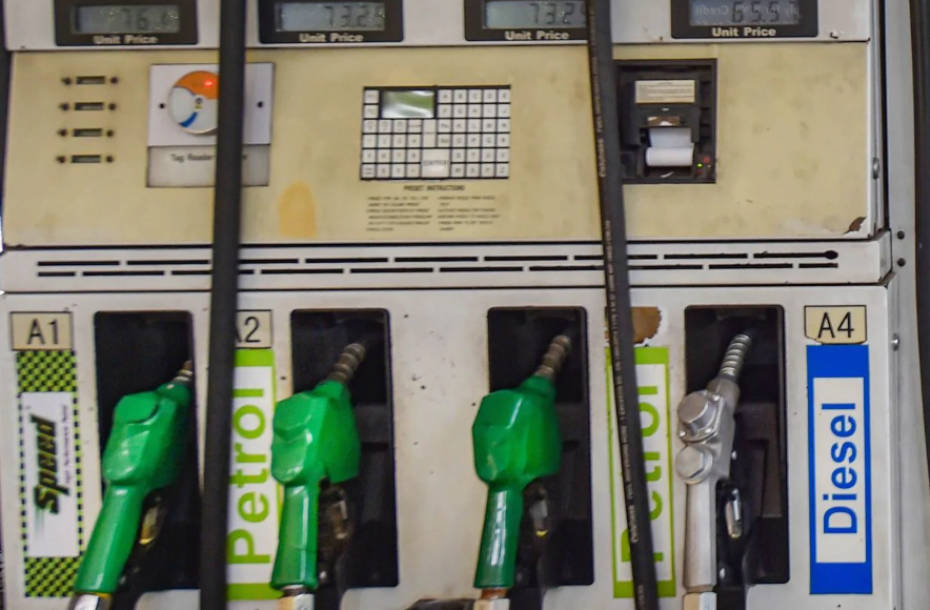3 Key Challenges To The Proposed Ban On Diesel Vehicles In By 2027
Modified On May 11, 2023 12:48 AM By Tarun
- Write a comment
For those who think the ban is confirmed, NO. The government hasn’t imposed the diesel ban from 2027 and is still reviewing the report

The Energy Transition Advisory Committee, a government panel under the Ministry of Petroleum and Natural Gas, recently put out a report that recommended a strict pan-India diesel ban by 2027. The report stated that the use of four-wheel diesel cars should be banned in cities with a population of more than a million people or heavily polluted cities. Given the country’s dense population, and by extension the poor air quality, this applies to basically every town and city.
First, let us clarify that the government has NOT ACCEPTED the recommendations of the report and there is NO BAN on diesel vehicles just yet. While the government finds the recommendations wide-ranging and fast-moving, it is yet to initiate a consultation with various stakeholders, multiple ministries, and states to find a more acceptable solution to the overall task of achieving the target of India achieving carbon neutrality by 2070.
Amidst this confusion, we analyze how the diesel ban would affect India and here are the three challenges to such an aggressive and arguably impractical approach:
Difficult For Commercial Vehicles

Almost all commercial vehicles, be they small trucks, buses, or cabs, are diesel-powered. Even with a shift towards petrol, hybrid of CNG powertrains, diesel powertrains dominate the mid to large size commercial vehicle space. While the price of diesel has come a lot closer to that of petrol, diesel vehicles are more efficient and offer more ‘bang’ for the buck. Since these commercial vehicles are also used for long-distance journeys, it offers great savings each month. Then there’s the extra torque from a diesel engine that helps commercial vehicles move large weights with ease, even in difficult driving environments.
Also Read: Diesel Cars In India
In many hard-to-reach locations, especially mountainous areas, diesel-powered four-wheeler commercial vehicles are the only means to transport essential goods and services. These places are also not infrastructurally ready for a switch to electrified vehicles or may not be able to sufficiently meet the spike in demand for LPG.

Furthermore, investments for commercial vehicles are made for long-term use and diesel engines have a proven history of lasting a fairly long time and are easy to work on as well. Placing a diesel ban on such a short timeline would affect these owners quite adversely without any financial relief.
Manufacturers’ Investment On BS6 Compliant Diesel Engines

Talking of monetary investment on the buyers of diesel vehicles, that’s a much bigger issue for the manufacturers. Carmakers like Hyundai, Tata, Mahindra, and MG have heavily invested in making their diesel cars compliant with the latest BS6 Phase 2 emission norms since there has been enough market demand for the same. These brands, we believe, are planning to keep diesel engines on sale until the market is ready for a complete transition to electrified vehicles over a longer period. The diesel ban would put the manufacturers’ investment down the drain, causing a disruption in the industry. While the market share of diesel cars has considerably reduced, it’s still fairly popular in SUVs and bigger cars. Such a significant change in policy has to give affected parties a longer time frame to adapt and not see India as a bad investment.
Also Read: Electric Cars In India
Hybrid And EVs Still Not Popular

Strong hybrids and electric cars are possible solutions and replacements for these diesel cars, but not by 2027. The infrastructure for EVs is still not fully developed while expensive hybrid tech remains out of reach for most car buyers in the country. Most of the metro cities are equipped with a good number of charging stations, but reliability is still an issue.
Similarly, hybrid cars do gain up on the fuel efficiency aspect of a diesel car, but power and torque (primarily the acceleration and pick up) won’t be as good as the latter. Furthermore, we have tested and discovered that diesel four wheelers are designed to offer more range per tank than any comparable electrified alternative.

Currently, there are only four strong hybrid cars on sale, including the Maruti Grand Vitara, Toyota Hyryder, Honda City Hybrid, and Toyota Innova Hycross. Limited EVs and hybrids are on sale, and issues like range anxiety, high prices and lack of reliable charging infrastructure have kept their adoption slow. In the near future, the numbers might increase, but that’s to wait and watch.
While we agree with the push towards cleaner mobility and a carbon neutral India, it needs to be done in a phased and considerate manner. Suggesting gas(LPG/CNG) powered vehicles as the intermediary fuel type in the transition to electric mobility does not seem to factor in the current limitations of that technology which also needs to evolve and improve over time. The fact that the recommended policy not only states a ban on sale of new diesel cars, but says they will not be allowed to run in towns and cities means that even the new-age emission compliant vehicles will be made redundant. Forcing upon citizens and businesses to lose their investment in diesel vehicles without viable alternatives and financial relief would not be the way forward.
1 out of 1 found this helpful















